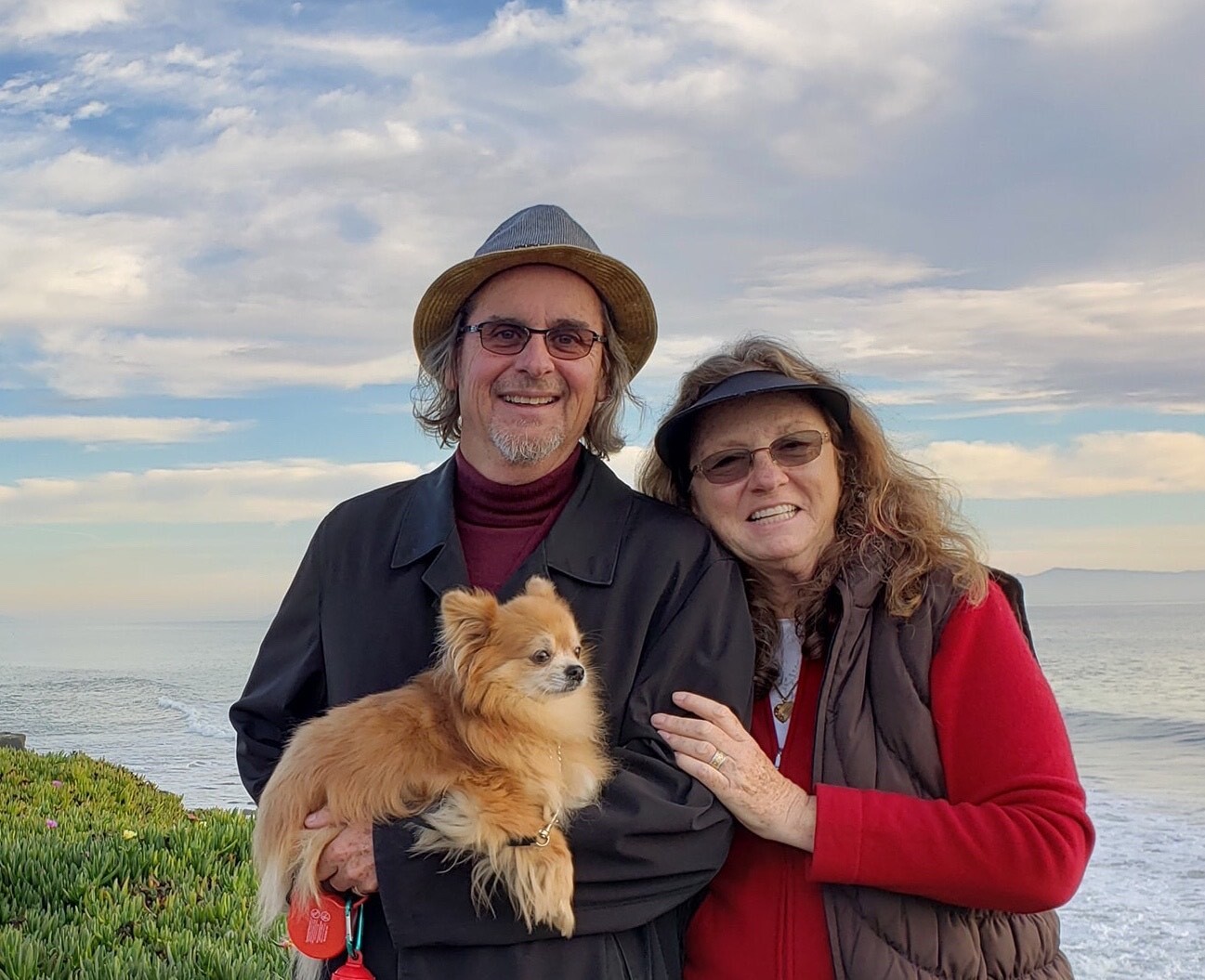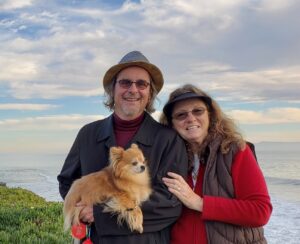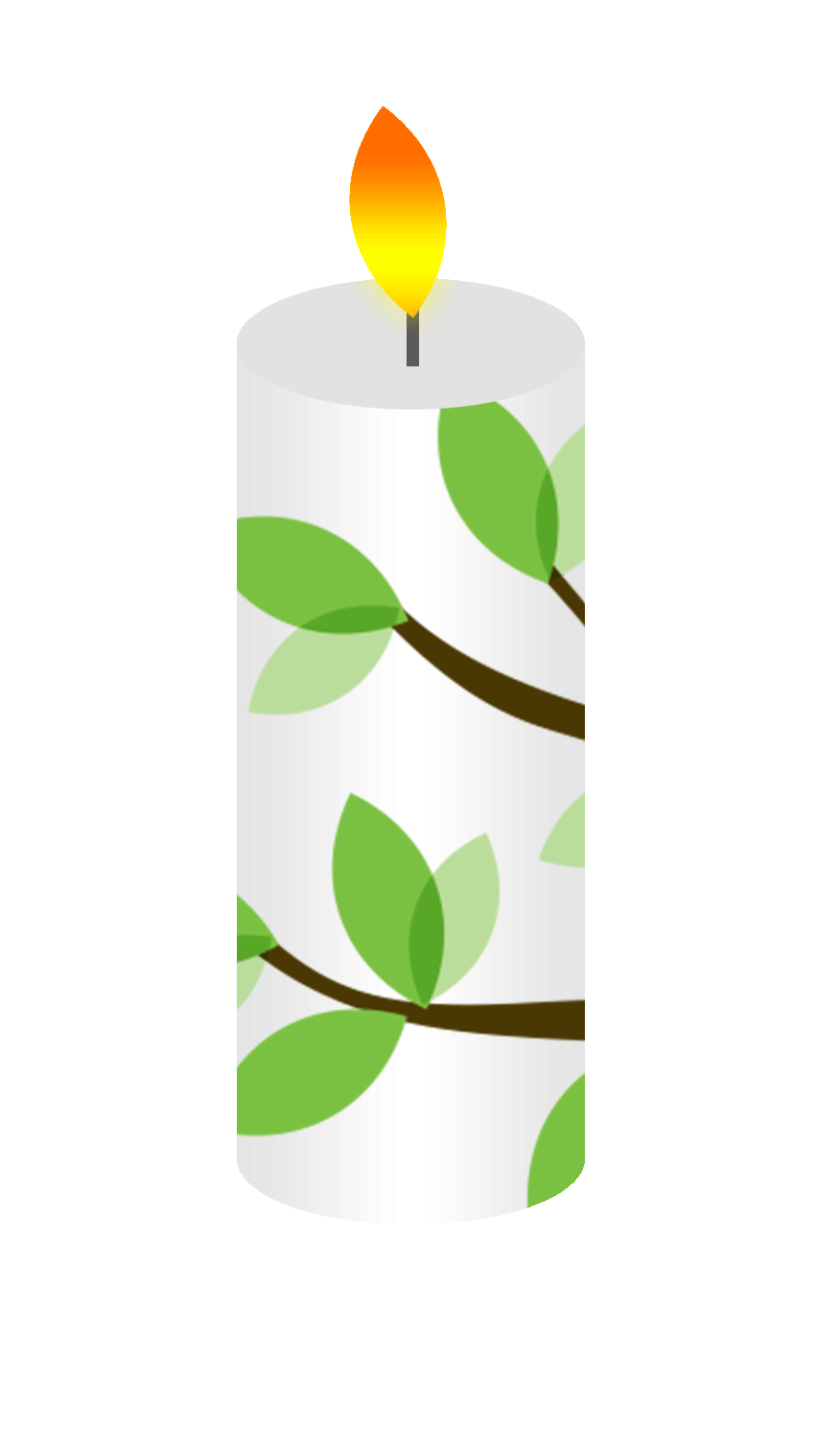
Longterm Patient Highlight - Tom Leitzke
Home / Blog / [wpbb post:title]
My name is Tom Leitzke. I was born and raised in Sandusky, Ohio, and was living as an expatriate in Japan, managing global operations for a publicly-traded robotics company when I was diagnosed with perihilar cholangiocarcinoma (stage 3B) in 2007. I was 58.
Today, I live in Santa Cruz, CA and have an active life. Roxanne and I have three kids and five grandchildren. We enjoy time with family, travel, hiking, exploring and bicycling. I also have a passion for music as a drummer/percussionist and enjoy woodworking. Our kids say we really know how to have fun and we have also heard our grandchildren refer to us as “fun” grandparents. Along with this fun we still recognize that I am in a high medical risk category. With hope, gratitude, passion, and acceptance we embrace each day.
In July 2007, I started to experience a significant loss of energy with extreme itching (my entire body), loss of appetite, and other digestive track issues. After several doctor trips (from Japan back to California) and misdiagnoses, I was finally diagnosed in December 2007 with cholangiocarcinoma, specifically, I had a Klatskin Tumor. The only word I recognized was “tumor”, and I knew it wasn’t good news.
My doctor said there was an 80 percent chance I had only one to seven months left to live. After a week’s worth of tests, it was determined I qualified for surgery to remove the tumor that was blocking my bile duct and growing into my liver. The expectation was set I would never work again and my life expectancy would likely not exceed two years, even if surgery was very successful. This was the start of my journey with cancer. My initial thought when hearing this, was that I had always been the “lucky one” and now it’s “my time in the barrel” to deal with this significant disease. It seemed strange, but that’s how I felt.
Surgery was on New Year’s Eve 2007. It took 8 hours and my surgeons removed 60 percent of my liver, bile ducts, and gall bladder. Part of my small intestine was used to construct new bile ducts. The surgery went well, achieving negative margins, and finding no evidence of spread in several area lymph nodes. After surgery, my wife Roxanne was told there had been risk of liver failure for the next several days.
Well, this New Year’s Eve we look forward to celebrating the 13th anniversary of my surgery. It is a special celebration of life for us!
Hope is necessary for the will to follow. Overall, keeping hope, gratitude, passion, and acceptance at the forefront of my medical recovery was probably the most important thing for me. I am also blessed to have an entire medical team I trust, respect, and honor. It is my responsibility to own medical decisions impacting my health and I chose my doctors accordingly. In the early stages, Roxanne interpreted and guided me in my thinking. Different doctors had different recommendations for treatment and I had to choose what I thought was the best course for me, never knowing if I was making (or made) the best decisions.
Some days there was no song in my heart, but I kept going anyway. The journey back to health was a learning experience that caused me to change course in a number of areas. With uncertainty about the future, I attempted to influence it with pure moral strength – recognizing that cancer is not the enemy, but the symptom and result. During the last 13 years, I have seen a lot of progress in dealing with this disease. The Cholangiocarcinoma Foundation has been front and center is helping to drive visibility and advancements for this rare disease. There is still a lot we do not know, but there is also a lot we do know.
I love my medical team, and it takes a complete team. We have been together for thirteen years and have developed a sense of intimacy during our thirteen years together. Although my initial diagnosis seemed to not have a lot of hope, I felt immense trust and confidence in the proposed direction that started my recovery journey.
Cancer is an important part of my life journey, but it does not define me. Although I am not thankful for having cholangiocarcinoma, in some ways, it has enhanced my life journey. It has helped me to be a more caring person with an attitude of gratitude as well as acceptance. It has helped me to focus more on who I am and who I want to be. Surviving cholangiocarcinoma has had a very significant introspective impact on my life. As a result nine of the last thirteen years have been amongst the best of my life. That is a lot more than I could have possibly hoped for when I was diagnosed.
As a young adult facing a tough situation, a mentor once coached me by saying, “If you don’t quit, you won’t lose”! This attitude has helped me many times in my life. I don’t believe it necessarily applies to cancer, but it sure helps! I have also been coached by my oncologist to not get cocky when things are going well, but to always be cautiously optimistic. I have passed many hurdles successfully and still remind myself to maintain cautious optimism.
Life has obstacles and tough situations still need to be dealt with. I am getting much better at replacing stress/worry/resentment with acceptance and letting go or taking action to resolve. Also learning to not sweat the small stuff when things don’t go my way. I believe how I previously allowed too much stress/worry/resentment in my life helped contribute to my susceptibility to cancer.
The best advice I received from another cancer patient is to expect some “zigs and zags” along the way, and it helped me be ready when the zigs actually happened.
Life is a blessing. I am thankful to be alive, to share my cancer experiences with family, friends, and others impacted by this disease. I am grateful for my life journey and where I am today. What sometimes seems like an end is a new beginning. It was for me and it starts with hope.

